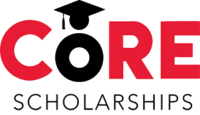Our Program Director, Jordyn Myers, reflects on Andre Perry’s article in The Root, “Somebody Lied: Education Alone Can’t Dismantle White Supremacy”
When I read, “Somebody Lied: Education Alone Can’t Dismantle White Supremacy”, I took a deep breath. Many of my own thoughts and experiences are reflected in Andre Perry’s breakdown of how post-secondary is positioned as a “great equalizer” especially for people of color.
I was raised in a Black middle class household. My parents told me almost everyday to study hard. Even now, fresh from receiving a bachelor’s degree, they ask when I’m returning to going to get my master’s degree. My success and excellence was measured by my ability to get good grades and my pursuit of activities that would help me get into a good college after high school. I’m grateful for my family’s emphasis on education and how much of their own dreams my parents sacrificed to help me realize mine. However, my expectations for what a college education would provide for me were misinformed.
Many students are told that college is a one-way ticket to riches and stability and that this is the measure of success that they should strive to achieve. We are being sold a bill of false goods when we are told that college is a one-size-fits-all path to success and little emphasis is put on the ways in which our systems of education can be problematic for low income students and students of color. We exist in a society that thrives on an imbalance of power that is always tilted against marginalized people. College does not exist outside that society nor does it exist in opposition to it.
In his article, Perry writes, “Kids don’t live in schools; they live in communities. And schools don’t transcend neighborhoods and cities; they are part of them. Improving people’s lives means we must empower the communities that schools are in.”
I want to repeat this line about 5 more times and add extra emphasis on the fact that this applies to post-secondary education as well. Post-secondary education is a tool you can wield to your advantage, but it is important to understand what that tool can do for you and what it is not meant to do. It is important to sit in classrooms and take note of what is taught but also what isn’t and who is left out of the conversation. We have to bring the community into the classroom.
I feel strongly that foundations like CORE Scholars are a necessary part of that work. Even Andre Perry gives us a shout-out when he notes the importance of “investing in truer equalizers such as scholarships restricted to low-income families”. A scholarship program like ours, and the community that we are working to build around us, is one way to make education more accessible to communities that have historically been excluded. The more we invest in and empower these communities, the more we will begin to see shift in the imbalance of power.



